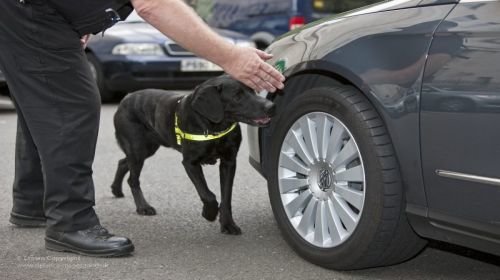ACLU Moves to Quash Abusive Subpoena Aimed at Tracking Down Man Who Criticized Department of Homeland Security
SAN FRANCISCO – A Philadelphia-area man, identified in court filings as Jon Doe, is challenging an administrative subpoena issued to Google seeking information about his identity and home address after he sent an email to a Department of Homeland Security official criticizing their treatment of a man seeking asylum from Afghanistan. After reading an article in the Washington Post detailing misleading arguments made by the DHS attorney attempting to deport the asylum-seeker to Afghanistan, Doe sent a short email to the attorney at his publicly available DHS email address. The email urged DHS to “apply principles of common sense and decency” in its treatment of the asylum seeker.
Just four hours after Doe sent the email, DHS issued an administrative subpoena to Google seeking a variety of information about Doe and his Gmail account. Google alerted Doe to the subpoena and has not yet fulfilled it. About two weeks after he was notified about the subpoena, two DHS agents and a local police officer showed up to his home to interrogate him about the email.
“As a longtime advocate for the rights and dignity of refugees and asylum seekers, the story I read in the Washington Post saddened and alarmed me," said Jon Doe. "In a democracy, contacting your government about things you feel strongly about is a fundamental right. I exercised that right to urge my government to take this man's life seriously. For that, I am being investigated, intimidated, and targeted. I hope that by standing up for my rights and sharing my story, others will know what to do when these abusive subpoenas and investigations come knocking on their door."
Yesterday, Doe filed a motion to quash the subpoena, arguing that it violates both federal law and the First Amendment because it impermissibly targets him for his constitutionally protected speech.
“These types of abusive subpoenas are designed to intimidate and sow fear of government retaliation," Stephen A. Loney, ACLU-PA senior supervising attorney. "If you can’t criticize a government official without the worry of having your private records gathered and agents knocking on your door, then your First Amendment rights start to feel less guaranteed. They want to bully companies into handing over our data and to chill users’ speech. This is unacceptable in a democratic society.”
Administrative subpoenas like the one sent to Google about Doe are not self-enforcing, not signed by a judge, and require a court order to make them actionable. They are often issued to companies silently, without the person they target knowing about them unless notified by the company. DHS has used them previously to try to unmask anonymous social media users who posted about ICE raids and has also used them to try to pressure Columbia University into sharing information about a student who had participated in pro-Palestinian protests. After the ACLU of Northern California and ACLU of Pennsylvania filed motions challenging some of these subpoenas issued to gather information about Instagram, and Facebook users, DHS withdrew the subpoenas.
"If tech companies and other private actors are expected to hand over information about users just because of their political beliefs, there’s no telling when the requests would stop,” said Jennifer Granick, surveillance and cybersecurity counsel with the ACLU’s Speech, Privacy, and Technology Project. “Companies like Google know a lot about our lives, and we should feel confident that the government can’t get their hands on that information on a whim; it would damage the trust of users who allow them to collect sensitive information about their lives and preferences, and it would chill political expression across the board. These abusive subpoenas seek to punish individuals for their speech, but that is prohibited by the First Amendment.”
The motion to quash the subpoena was filed in the U.S. District Court for the Northern District of California by the American Civil Liberties Union, the ACLU of Northern California, and the ACLU of Pennsylvania.
The motion can be viewed here.
Court Case: Doe v. DHS
Affiliates: Pennsylvania, Northern California




